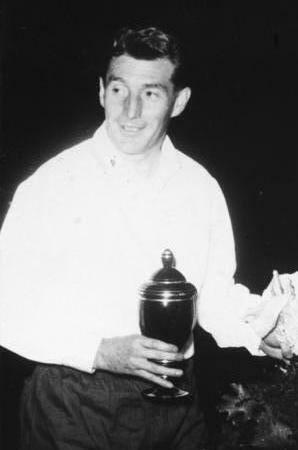
Friedrich "Fritz" Walter was a German footballer who spent his entire senior career at 1. FC Kaiserslautern. He usually played as an attacking midfielder or inside forward. In his time with the Germany and West Germany national teams, he appeared in 61 games and scored 33 goals, and was the captain of the team that won the 1954 FIFA World Cup.
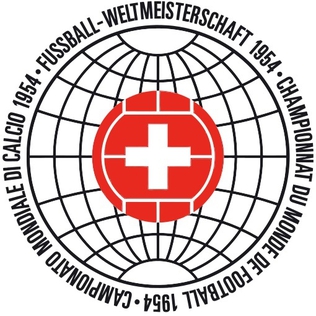
The 1954 FIFA World Cup was the fifth edition of the FIFA World Cup, the quadrennial international football tournament for senior men's national teams of the nations affiliated to FIFA. It was held in Switzerland from 16 June to 4 July. Switzerland was selected as the host country in July 1946. At the tournament several all-time records for goal-scoring were set, including the highest average number of goals scored per game. The tournament was won by West Germany, who defeated tournament favourites Hungary 3–2 in the final, their first World Cup title.
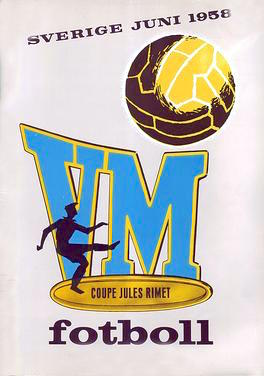
The 1958 FIFA World Cup was the sixth FIFA World Cup, a quadrennial football tournament for men's senior national teams, and was played in Sweden from 8 to 29 June 1958. It was the first FIFA World Cup to be played in a Nordic country.

Ferenc Puskás was a Hungarian football player and manager, widely regarded as one of the greatest players of all time and the sport's first international superstar. A forward, he scored 84 goals in 85 international matches for Hungary and played four international matches for Spain. He became an Olympic champion in 1952 and led his nation to the final of the 1954 World Cup. He won three European Cups, ten national championships and eight top individual scoring honors. Known as the "Galloping Major", in 1995, he was recognized as the greatest top division scorer of the 20th century by the IFFHS. With 806 goals in 793 official games scored during his career, he is the seventh top goalscorer of all time.

Helmut Rahn, known as Der Boss, was a German footballer who played as a forward. He became a legend for having scored the winning goal in the final of the 1954 FIFA World Cup. Rahn, along with the German team, were decorated by the President of the Federal Republic of Germany in 1972.

The Hungary national football team represents Hungary in men's international football and is controlled by the Hungarian Football Federation. The team has made 9 appearances in the FIFA World Cup and 4 appearances in the European Championship, and plays its home matches at the Puskás Aréna, which opened in November 2019.
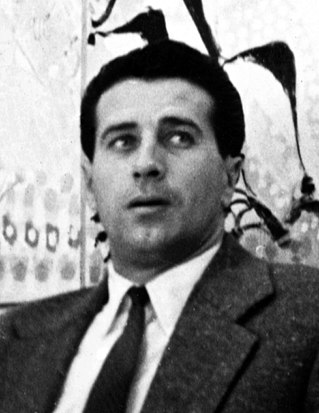
József Bozsik was a Hungarian footballer who played as a central midfielder. He spent his entire club career at his hometown club, Budapest Honvéd. Bozsik was a key member of the legendary Golden Team as he represented Hungary in various international tournaments. Honvéd named their stadium, Bozsik József Stadion, after him.

Nándor Hidegkuti was a Hungarian football player and manager. He played as a forward or attacking midfielder and spent the majority of his playing career at MTK Hungária FC. During the 1950s he was also a key member of the Hungarian National Team team known as the Golden Team. Other members of the team included Ferenc Puskás, Zoltán Czibor, Sándor Kocsis and József Bozsik. In 1953, playing as a deep lying centre-forward, a position which has retroactively been compared to the modern false 9 role, he scored a hat-trick for Hungary when they beat England 6–3 at Wembley Stadium. Playing from deep, Hidegkuti was able to distribute the ball to the other attackers and cause considerable confusion to defences. This was an innovation at the time and revolutionised the way the game was played.

Sándor Péter Kocsis was a Hungarian footballer who played for Ferencváros TC, Budapest Honvéd, Young Fellows Zürich, FC Barcelona and Hungary as a striker. During the 1950s, along with Ferenc Puskás, Zoltán Czibor, József Bozsik and Nándor Hidegkuti, he was a member of the Mighty Magyars. After the 1956 Hungarian Revolution, he moved to Spain where he became a member of the FC Barcelona team of the late 1950s.

Josef "Sepp" Herberger was a German football player and manager. He is most famous for being the manager of the West Germany national team that won the 1954 FIFA World Cup final, a match later dubbed The Miracle of Bern, defeating the overwhelming favourites from Hungary. Previously he had also coached the Breslau Eleven, one of the greatest teams in German football history.

The 1954 FIFA World Cup final was the final match of the 1954 FIFA World Cup, the fifth World Cup in FIFA history. The game was played at the Wankdorf Stadium in Bern, Switzerland, on 4 July 1954, and saw West Germany beat the heavily favoured Golden Team of Hungary 3–2.

Gyula Grosics was a Hungarian football goalkeeper who played 86 times for the Hungary national football team and was part of the "Golden Team" of the 1950s. Regarded as one of the greatest goalkeepers of all time, he was thought to be the first goalkeeper to play as the sweeper-keeper. Grosics was nicknamed "Black Panther", because he wore black clothing while playing. He won a gold medal in football at the 1952 Summer Olympics.

Juan Eduardo Hohberg was an Argentine-born Uruguayan football player and coach. He is best remembered as a player for Peñarol (1949-59) where he won 6 Uruguayan Primera División title wins, and for playing for Uruguay at the 1954 FIFA World Cup - where Uruguay finished 4th. He was also Manager (coach) of Uruguay at the 1970 World Cup - they finished 4th

Géza Toldi was a Hungarian footballer. He played for Ferencvárosi TC, and from 1934 to 1938 for the Hungarian national team, serving as captain in 1936. He scored a goal in the 1938 FIFA World Cup.
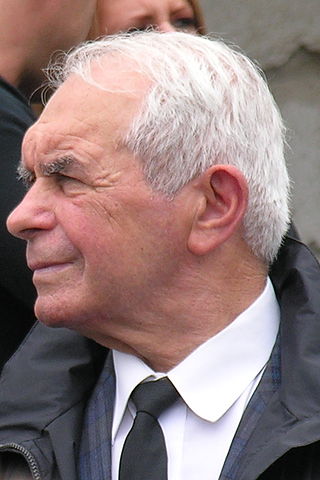
Máté Fenyvesi was a Hungarian footballer and politician.
Béla Kárpáti was a Hungarian football defender who played for Hungary in the 1954 and 1958 FIFA World Cups. He also played for Győri ETO FC and Vasas SC.
Imre Kovács was a Hungarian football midfielder who played for Hungary in the 1954 FIFA World Cup. He also played for MTK Budapest FC. He won a gold medal in football at the 1952 Summer Olympics.
Ferenc Szojka was a Hungarian football midfielder who played for Hungary in the 1954 and 1958 FIFA World Cups. He also played for Salgótarjáni BTC. He was part of Hungary's squad at the 1952 Summer Olympics, but he did not play in any matches.

Ferenc Machos was a Hungarian football forward who played for Hungary in the 1954 FIFA World Cup. He also played for Budapest Honvéd FC.
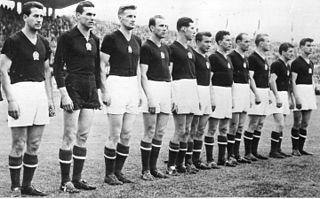
The FIFA World Cup is an international association football competition contested by the men's national teams of the members of Fédération Internationale de Football Association (FIFA), the sport's global governing body. The championship has been awarded every four years since the first tournament in 1930, except in 1942 and 1946, due to World War II.















